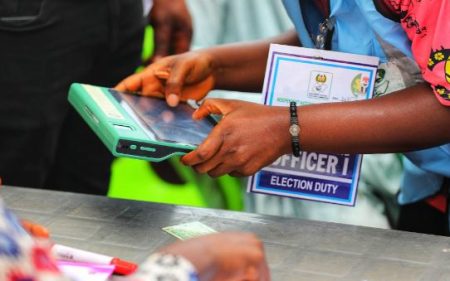A legal dispute between Keystone Bank Limited and TAK Logistics Limited over a N24.9 billion loan took a procedural turn when Justice Chizoba Oji of the High Court of the Federal Capital Territory, Abuja, declined to extend a Mareva injunction freezing accounts purportedly linked to TAK Logistics. The initial injunction, granted by Justice A.I. Akobi, had expired after its seven-day lifespan, and Keystone Bank sought to renew it during the court’s vacation period. Justice Oji, however, refused the application, citing a lack of legal basis for such an extension under Order 48 Rule 5(1) of the High Court of the FCT Civil Procedure Rules 2025, particularly given the case’s part-heard status. She directed the parties to return to Justice Akobi’s court in Kubwa after the vacation period concluded.
The core issue revolves around a loan granted to TAK Logistics Limited in January 2021 under the Central Bank of Nigeria’s Real Sector Support Facility/Differentiated Cash Reserve Requirement (RSSF/DCRR) Scheme, facilitated by Keystone Bank. TAK Agro Plc, a separate entity, publicly asserted its non-involvement in the loan dispute and clarified that it had no contractual relationship with Keystone Bank. Furthermore, TAK Agro’s chairman, Mr. Thomas Akoh Etuh, who previously held a non-executive position on TAK Logistics’ board, had reportedly disengaged from the company well before the legal proceedings commenced. Both TAK Agro and Mr. Etuh questioned their inclusion in the lawsuit, emphasizing that neither had any involvement in the loan’s disbursement or management.
TAK Logistics maintained that it had already repaid a significant portion of the loan, approximately N9.78 billion (around 40%), despite the loan’s seven-year tenor extending to 2028. They raised concerns regarding procedural irregularities surrounding the case. TAK Logistics claimed they were served the originating processes on July 18, 2025, a month after the filing date, while TAK Agro Plc and Mr. Etuh were served even later, on July 23, after the ex-parte injunction had already been implemented. This delayed service, they argued, prejudiced their rights and questioned the validity of the initial injunction.
During the July 22 hearing before Justice Oji, Keystone Bank’s counsel, Mofesomo Tayo-Oyetibo (SAN), presented two new ex parte applications. The first sought permission for the matter to be heard during the court’s vacation, specifically to address a substantive application. However, TAK Logistics’ counsel, Michael Aondoakaa (SAN), along with his team, vehemently opposed this motion. They argued that proceeding with ex parte applications during vacation without prior notification to the respondents was improper. Aondoakaa further contended that since the matter was already before Justice Akobi, who had set a return date, the vacation judge lacked jurisdiction, especially given their lack of notice.
The legal arguments presented before Justice Oji centered on the interpretation of Order 48 Rule 5. Keystone Bank’s counsel argued for a disjunctive interpretation of the rule, emphasizing the urgency of the matter and the bank’s adherence to procedural rules. He argued they should not be penalized for following proper procedures and that the court order should be upheld. Conversely, TAK Logistics’ counsel argued that the case did not meet the requirements for urgent consideration during vacation, particularly as it was a part-heard matter and they had not been given proper notice. Aondoakaa also offered an undertaking that the assets covered by the debenture agreement would not be dissipated, although Keystone Bank’s counsel pointed out that this exhibit was part of the substantive suit and not relevant to the ex parte application.
Justice Oji’s ruling hinged on her interpretation of Order 48, Rules 4 and 5. She agreed that the rules allowed for urgent matters to be heard during vacation but concluded that this specific case did not satisfy the necessary criteria. Crucially, she found that Order 48 Rule 5(1) did not permit her to entertain the application in a part-heard case, ultimately declining to extend the Mareva injunction. The case was thus deferred to Justice Akobi’s court for continuation after the court’s vacation period. This decision underscores the importance of procedural adherence in legal proceedings and the court’s careful consideration of its jurisdiction, especially during vacation periods. The ongoing dispute between Keystone Bank and TAK Logistics will now continue before the designated judge, where the merits of the loan dispute and the procedural challenges raised will be further addressed.














